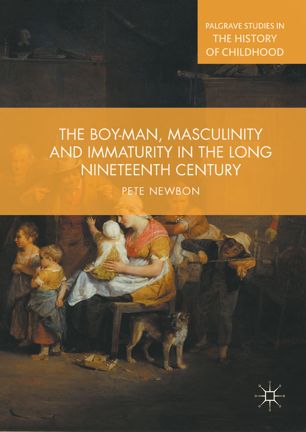

Most ebook files are in PDF format, so you can easily read them using various software such as Foxit Reader or directly on the Google Chrome browser.
Some ebook files are released by publishers in other formats such as .awz, .mobi, .epub, .fb2, etc. You may need to install specific software to read these formats on mobile/PC, such as Calibre.
Please read the tutorial at this link: https://ebookbell.com/faq
We offer FREE conversion to the popular formats you request; however, this may take some time. Therefore, right after payment, please email us, and we will try to provide the service as quickly as possible.
For some exceptional file formats or broken links (if any), please refrain from opening any disputes. Instead, email us first, and we will try to assist within a maximum of 6 hours.
EbookBell Team

4.7
76 reviewsThis book explores the evolution of male writers marked by peculiar traits of childlike immaturity. The ‘Boy-Man’ emerged from the nexus of Rousseau’s counter-Enlightenment cultural primitivism, Sensibility’s ‘Man of Feeling’, the Chattertonian poet maudit, and the Romantic idealisation of childhood. The Romantic era saw the proliferation of boy-men, who congregated around such metropolitan institutions as The London Magazine. These included John Keats, Leigh Hunt, Charles Lamb, Hartley Coleridge, Thomas De Quincey and Thomas Hood. In the period of the French Revolution, terms of childishness were used against such writers as Wordsworth, Keats, Hunt and Lamb as a tool of political satire. Yet boy-men writers conversely used their amphibian child-adult literary personae to critique the masculinist ideologies of their era. However, the growing cultural and political conservatism of the nineteenth century, and the emergence of a canon of serious literature, inculcated the relegation of the boy-men from the republic of letters.